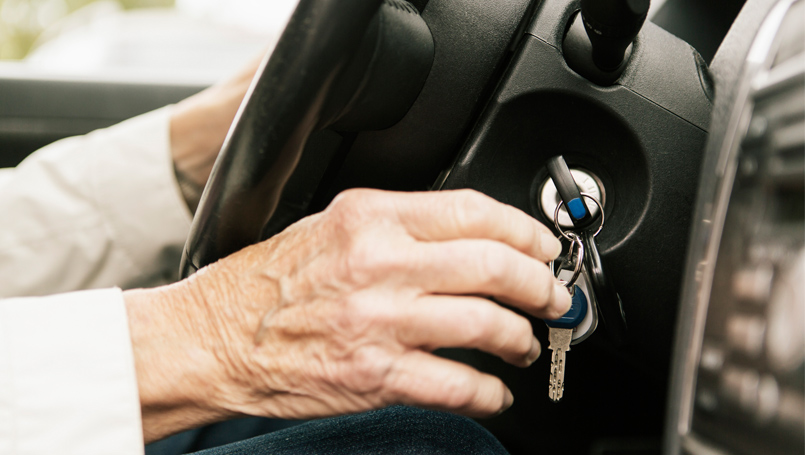
For many of us, the question is inevitable: Is it safe for my parents and other elderly loved ones to be driving?
Taking the keys or the entire vehicle away from an older driver is a difficult and highly emotional decision. Our vehicles are symbols of our freedom and independence. But, safety both for aging parents and others sharing the road should always be top of mind.
Be sure to periodically take a drive with your elderly loved ones. Be alert to changes in their driving ability or dangerous behaviors during the drive. Ask yourself if you would feel comfortable allowing your children, spouse or other loved one to be a passenger in their car.
There are certainly warning signs of unsafe driving. Some of the signs involve physical capabilities:
- inability to see or hear what is going on outside the car
- trouble moving foot from gas to brake pedal
- difficulty turning head when backing up or switching lanes
Others are related to cognitive capabilities:
- getting lost in familiar places
- getting confused at intersections, entrance and exit ramps, or roundabouts
- needing instruction or reminders someone else to determine what to do while driving
And, still others are related to poor or deteriorating driving skills, like:
- having trouble making turns
- having difficulty moving into or maintaining the correct lane of traffic
- having trouble judging the space between vehicles on the road
- parking inappropriately
- hitting curbs when making right turns or backing up
- unpredictably stopping in traffic
- failing to stop at stop signs or stop lights
- failing to notice important activity on the side of the road
Other signs to look for include:
- numerous scrapes and dents on the car, garage or mailbox
- frequent close calls
- warnings or ticketed for moving violations or having multiple “fender benders” or vehicle crashes
If you notice any of these signs in your parents or other elderly loved ones, you should consider taking action. Starting an honest and respectful conversation is the first step. Gently and honestly confide in the person the signs that you have observed and that concern you.
Recommend that the person consider having a formal driving assessment performed by a professional who is specially trained in this field. Remember to always approach the conversation with kindness, respect and concern for the older driver’s safety, self-respect and dignity. Research and offer solutions and suggestions for maintaining independence and social activity levels if it is determined that driving is no longer a safe option.
Sometimes the solutions can be as simple. Consider doing the following:
- having vision and/or hearing checked and updating glasses or hearing aids
- changing or adjusting the administration schedule of certain medications
- taking an exercise class that focuses on strength and flexibility
- limiting night or highway driving
To help with these steps, Michigan’s Secretary of State and a coalition of stakeholders offers Safe Drivers Smart Options, a statewide strategy to address the mobility needs of Michigan’s aging population. The program’s goal is to make sure drivers, their families and professionals have the tools needed to keep aging individuals safe and mobile, whether that’s behind the wheel of a car or on hired or public transportation. The Michigan’s Guide for Aging Drivers and Their Families can be obtained online or at any Secretary of State office.
Additionally, AARP Drivers Safety offers a 2-day, 8-hour course throughout the state of Michigan and the U.S. to help refresh older drivers on driving skills learned decades ago, point out how driving changes as we age, and offer strategies to keep us safer on the road. Some auto insurance companies offer a discount for those who complete the course.
